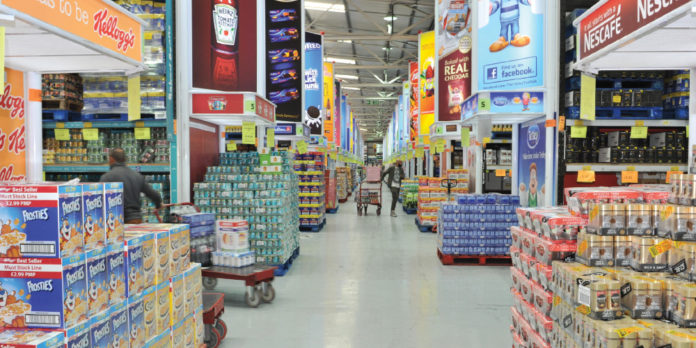Wholesale expert Keith D Robinson recently chose to illustrate a LinkedIn article with a picture of the Grim Reaper, which he captioned: “Food and drink wholesale, your time is up!”
Robinson astutely notes the arrival of Aldi and Lidl brands in foodservice outlets around the UK, as scrabbling independents chase the best price and millennial customers deviate from their parents’ loyalty to big brands.
“Will the big brands be loyal to the traditional wholesale model?” Robinson asks. No – because they only care about availability.
This is where the grim reaper image works. The style of wholesaling in which buyers compete to extract the biggest promotional support from ever-growing big-brand owners is diminishing.
The big brands are clear about the market challenges that they face and wholesalers have to think about how their strategies can provide value in the new wholesale ecosystem.
Take the consumer. Surveys suggest that seven out of 10 millennials are likely to choose the lowest-priced item on a grocery shelf. While the big brands talk about changing consumer preferences, they focus on the desire for health and wellness rather than the attitude that store brands are good enough.
The big brands see a world where the supermarkets are consolidating to demand lower prices, the hard discounters are growing market share and new e-commerce routes to market are emerging where the shelves are unlimited and they cannot control the availability of their brands.
Even 10 years ago, they could see that wholesale offered them a route to to a big consumer base to which they could sell the same products but generate profits up to 100% greater than through the supermarkets. What helped the old wholesale model then was that the big brands were still growing share and believed that market investment would keep their businesses motoring.
3G coverage
Then the growth stopped. Swimming in the midst of the big consumer packaged goods (CPG) companies was 3G – which today owns AG Inbev and Kraft – and its business model including the much admired ‘zero-based’ budgeting.
What 3G taught investors and then the senior management of big-brand companies was a way to make money based on two insights. First, there was a ‘juicy spread’ between the cost of debt and the high yield on big CPG companies’ shares. Second, conventional management thinking did not realise how resilient their brands’ sales were, which meant market costs could be cut without hitting profits.
However, although 3G made ‘cost-cutting’ a key business strategy, The Economist argues that the world has moved on – with so many consumers now opting for niche or store brands, the big brands look less indestructible.
So, will the big brands be loyal to the channel? Wholesalers need to think about this issue in a different way. Do they want to run a business where they depend on the big brands? If they do, what can they offer that will make the big brands loyal to them?
One solution is clear. Booker/Tesco can be the scale provider of a channel that offers big brands fast access to a lot of shelves. As a result, it can be the low-cost provider that attracts foodservice and retail customers.
Booker boss Charles Wilson has repeatedly said that his big competitor is a ‘man in a van’. While this brings up the image of someone able to sell at low cost, the real competitive edge small wholesalers have is the ability to meet local demand for products that the big supply chain cannot see.
The exciting future of wholesale is about helping to create new markets. To do this, wholesalers need to ‘own’ their customers by helping them to compete with multiples and e-commerce alternatives. If this ownership is based on low prices, then as a wholesaler you are in a commodity relationship and open to disruption from e-commerce and the big supply chain.
If your ownership is through an obsessive focus on finding the right mix of products that will help your customers thrive, then you will have something very attractive to offer big brands – access to consumers.
Putting a brand at the risk of being sold is what availability is all about.








